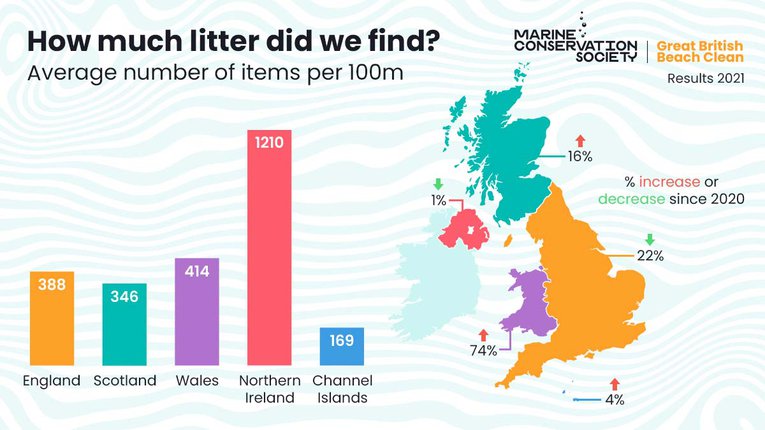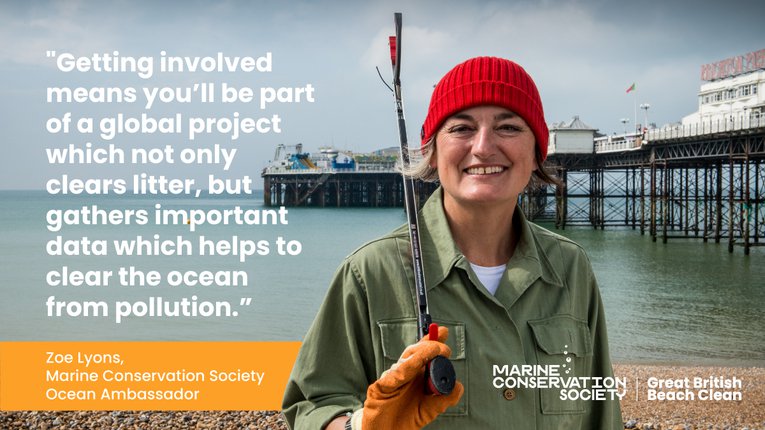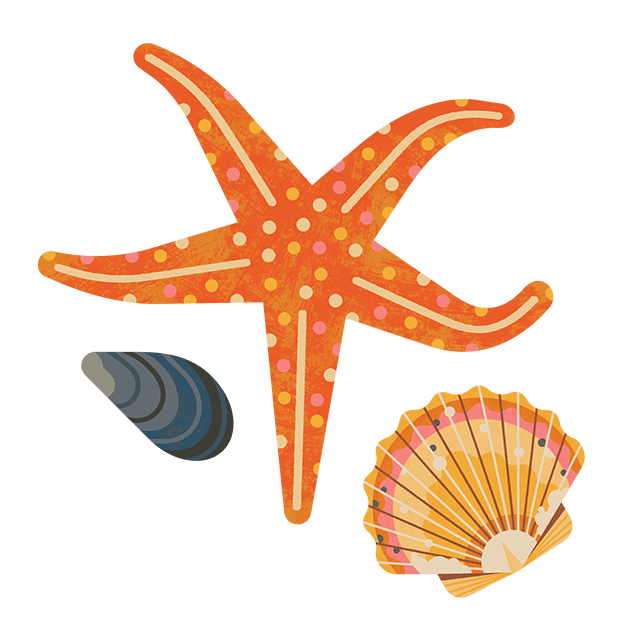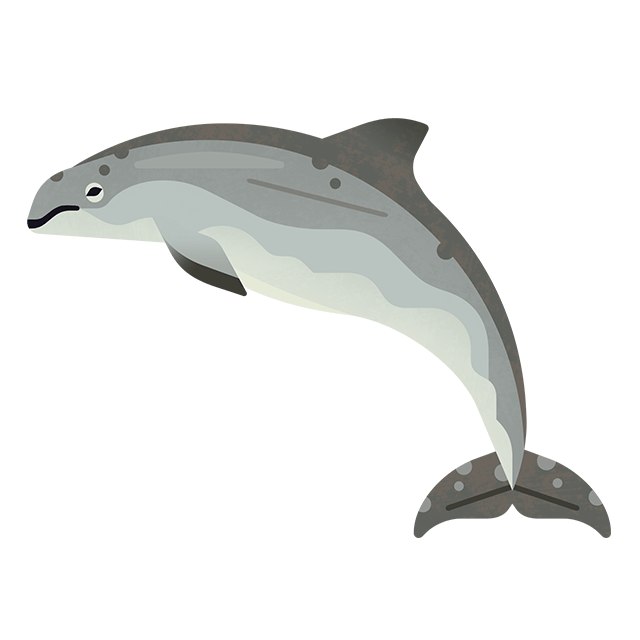
The results are in for our Great British Beach Clean 2021
4 minute read
Our Great British Beach Clean was back in full swing this year, with thousands of volunteers heading outside to clear litter from their local streets, parks and over 55,000 metres of UK beaches. Now the results are in – and there's some good news, but lots more work to be done.
A big thank you to all our volunteers
An army of 6,176 volunteers joined forces to take part in the Great British Beach Clean throughout the third week of September. A total of 5064.8kg of litter was collected over the week, with volunteers recording their findings for a citizen science project to discover the most common forms of litter blighting UK shores.

What did the results show?
- The average litter recorded per 100 metres is dropping year on year across the UK. An average of 385 items were found, compared to averages of 425 in 2020, and 558 in 2019.
- Cotton bud sticks moved out of the UK’s top 10 most common rubbish items. An average of six plastic cotton bud sticks were found – the lowest in the Great British Beach Clean’s 28-year history – down from 15 in 2020.
- Numbers of single-use plastic bags on beaches have continued to drop, from a high of 13 on average in 2013, to just three in 2021.
- 75% of all litter collected being was plastic or polystyrene. An average of 112 pieces were found for every 100 metres of UK beach surveyed.
- The number of cigarette butts found in Wales more than doubled from 2020 to 2021, with this year's average an all-time high for Welsh beaches.
- Wet wipes were the second most common form of litter in Scotland, many of which contain plastic and make their way to the coast through the sewer system.



Our data is driving positive change
The drop in litter levels can at least in part be attributed to single-use plastics bans and charges put in place across the UK, supported by Marine Conservation Society data.
Single-use plastic still a big problem
Despite the overall drop in litter, plastic remains the most prevalent form of litter across all the UK's beaches.
Levels of PPE found this year were similar to 2020, when masks were made mandatory across the UK. 32% of UK beaches cleaned found PPE litter though masks ranked 59 out of 121 for most common litter items.
Wet wipes have consistently featured in the top 10 most common litter items on Scottish beaches surveyed over the last five years. This form of litter, including other sewage-related items (like sanitary towels and nappies) isn’t a pandemic-related problem, but a chronic, long-term issue that needs to be tackled now. Join our campaign to take urgent action.
In Wales, an average of 56 cigarette stubs were found per 100m in 2018, dropping to 33 in 2019 and just nine in 2020. The jump to 64 this year is certainly cause for concern. As a result, the Marine Conservation Society is working with peers at ASH Wales to call for a ban on plastic in cigarette filters, and action to reduce smoking-related litter.
64
cigarette butts found per 100m of Welsh beach in this year's Great British Beach Clean
80
%
of litter picks found PPE in 2021
75
%
of all litter collected in this year's beach clean was plastic or polystyrene
What needs to be done?
With so much beach litter being made from plastic, the Marine Conservation Society is continuing to campaign for ambitious single-use plastics policies throughout the UK.
How you can help
You don't have to wait until the Great British Beach Clean to help keep our beaches beautiful and our oceans safe for wildlife.
Beachwatch volunteers can take part in beach cleans throughout the year – either by signing up to an organised event or by organising your own event.
And if you don't live near the sea, no problem! That's where our our Source to Sea: Litter Quest comes in. Most litter that ends up on our beaches or in the sea starts its journey in villages, towns and cities miles from the coast.
All of the data you collect on the beach, on your street or in a local park helps us campaign for change, which means that your school can help turn the tide on ocean pollution.









